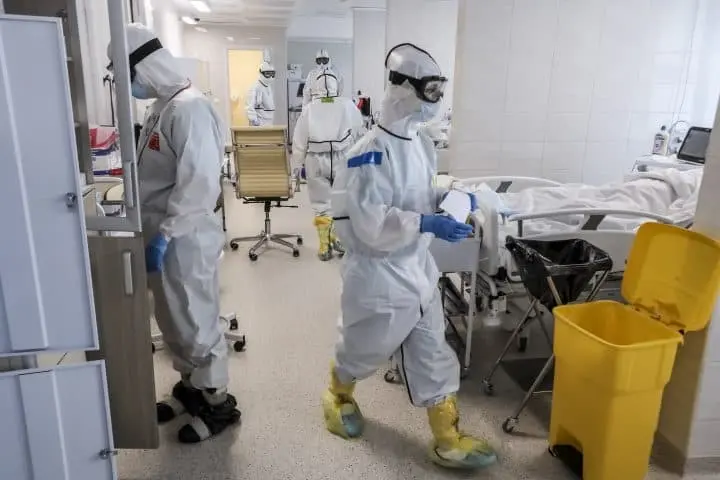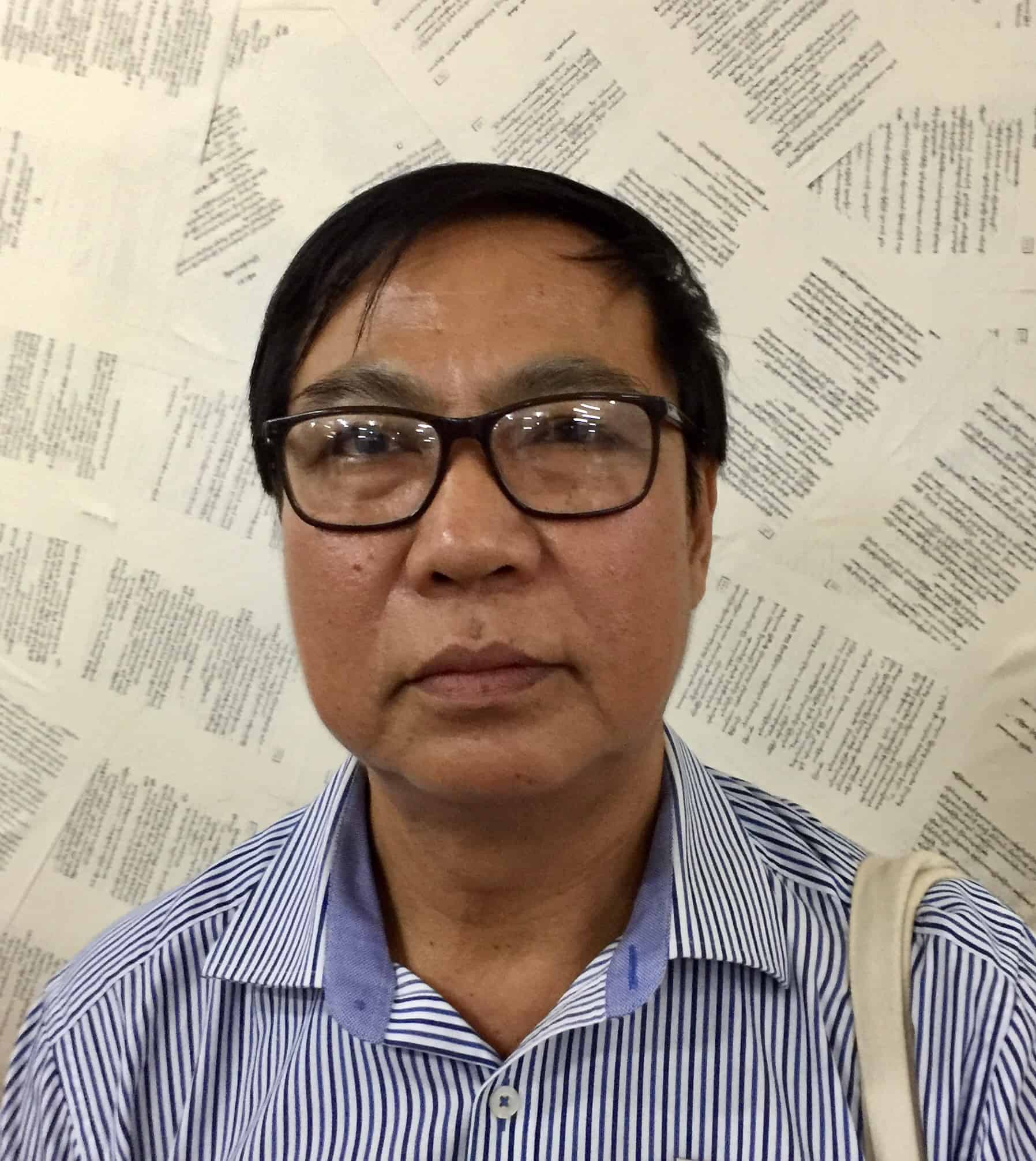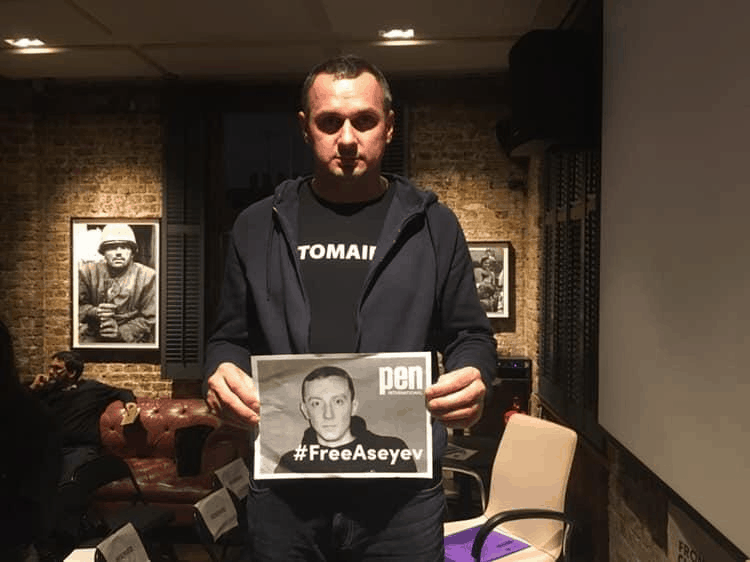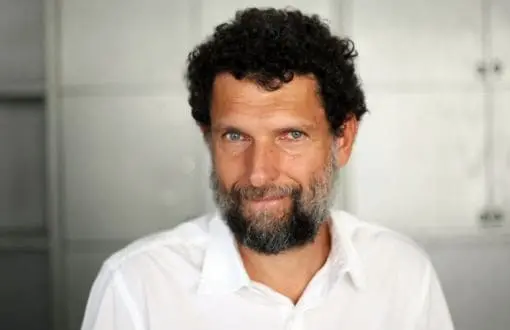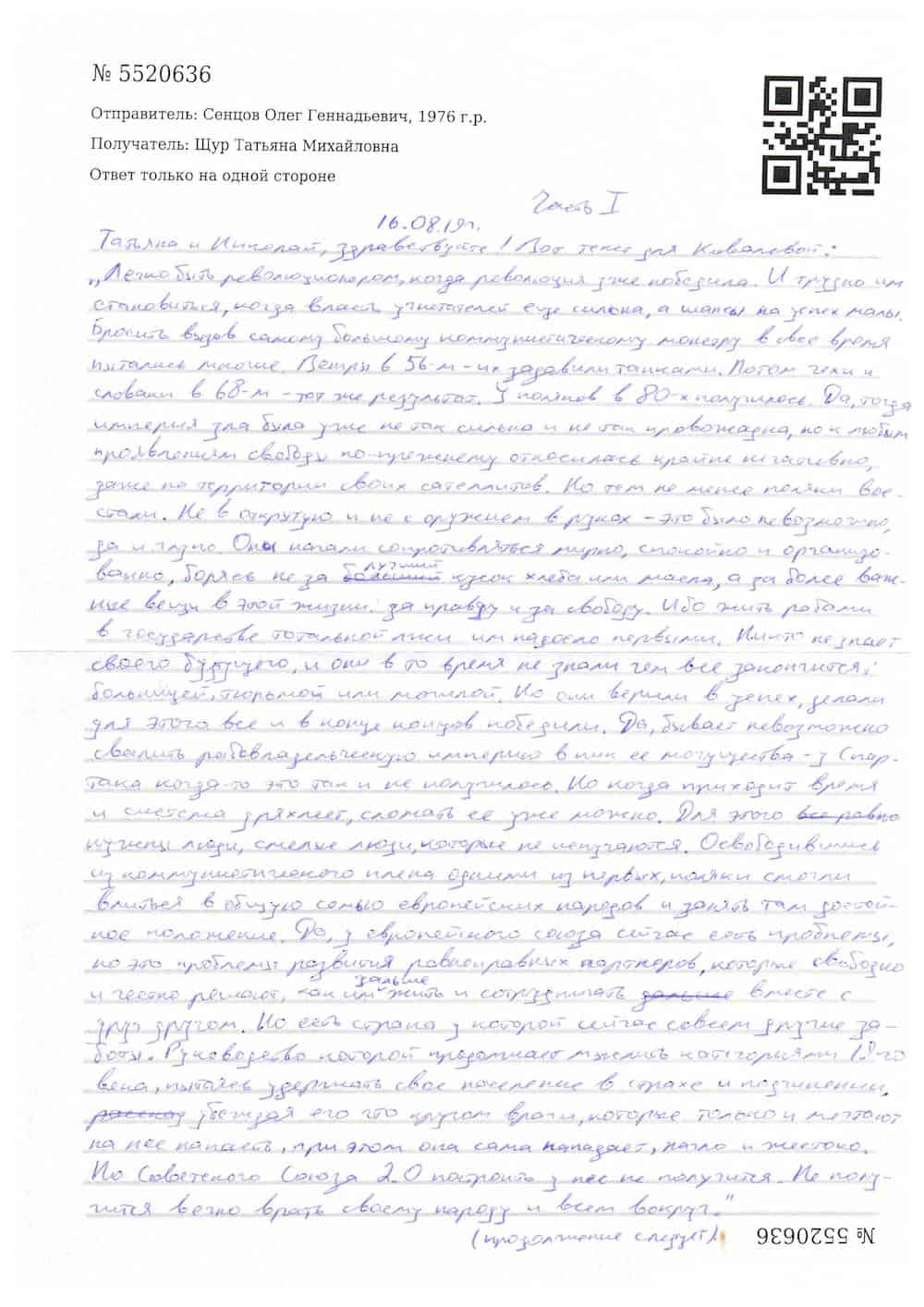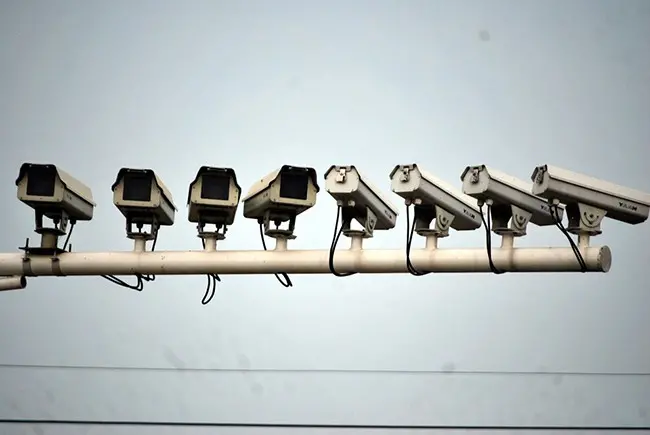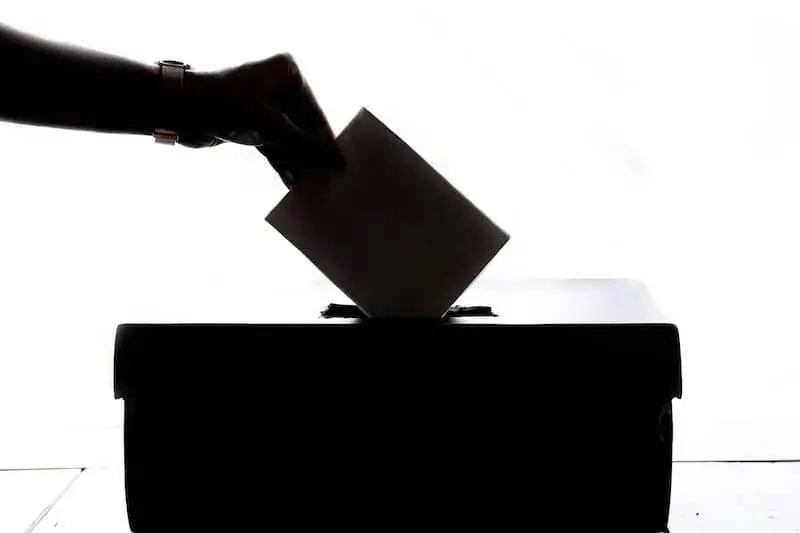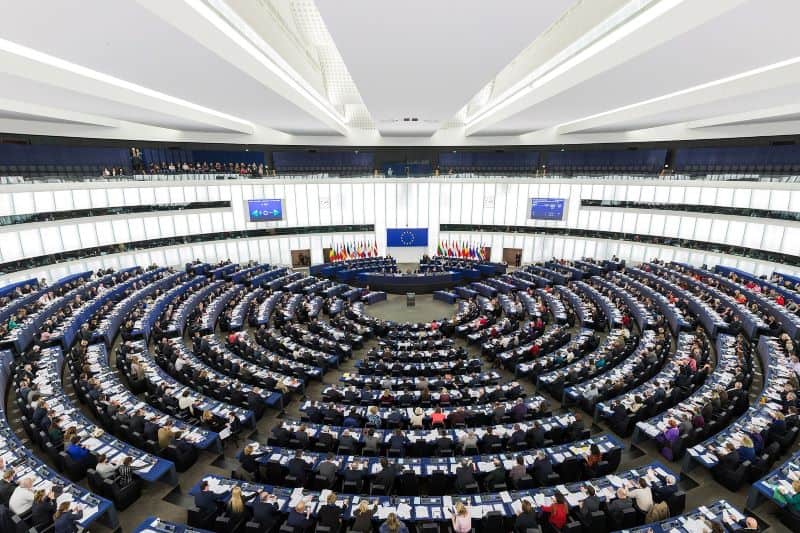PEN calls for the immediate and unconditional release of poet, lawyer and independent journalist Roberto de Jesús Quiñones Haces. In April 2019, he was detained while he was covering a trial for news website CubaNet. Quiñones Haces was released five days later and fined for conduct during his detention allegedly constituting ‘disobedience’ and ‘resistance.’ After refusing to pay the fine, he was sentenced to a prison sentence of one year on August 7 and detained on September 11, 2019. During his imprisonment, Quiñones Haces has developed health problems due to the conditions of detention and, according to the writer’s relatives, he is particularly at risk from Covid-19.
“PEN International believes that Roberto de Jesús Quiñones Haces is a victim of censorship in Cuba and that his detention violates his right to freedom of expression. We are concerned for his health, and with this in mind call for him to be released without delay,” said Carles Torner, Executive Director PEN International.
Take Action!
Please send appeals:
- Release Roberto de Jesús Quiñones Haces immediately and unconditionally.
- End the persecution of writers, journalists, human rights defenders, cultural activists, artists, and other dissident voices, and immediately release all those held in prison for having exercised their rights to freedom of opinion and expression.
- Repeal Decrees 370 and 349 that limit the right to freedom expression and information.
- Stop judicial harassment of writers and journalists.
Send appeals to:
President
Sr. Miguel Díaz-Canel
Hidalgo, Esquina 6. Plaza de la Revolución, La Habana, CP 10400, Cuba
Email: [email protected]
Twitter: @DiazCanelB
Minister of Justice
Mr. Oscar Silvera Martínez
Calle O #216 entre 23 y 25. Plaza de la Revolución, La Habana, Cuba
Email: [email protected]
Twitter: @CubaMinjus
Facebook: @MinisterioJusticiaCuba
Please send copies to the Embassy of the Republic of Cuba in your own country. Embassy addresses may be found here: https://embassy.goabroad.com/embassies-of/cuba
Also consider calling on your Ministry of Foreign Affairs and diplomatic representatives in Cuba to raise Roberto de Jesús Quiñones Haces’ case in bilateral and multilateral fora.
Please inform PEN of any action you take and of any responses you receive.
**** Please send appeals immediately ****
Publicity
PEN members are encouraged to:
- Publish articles and opinion pieces in your national or local press highlighting the case of Roberto de Jesús Quiñones Haces and freedom of expression in Cuba;
- Share information about Roberto de Jesús Quiñones Haces and your campaigning activities via social media;
- Share his poetry (find it in English below) on social media calling for his release.
Please inform PEN of any action you take and of any responses you receive.
The Prison
The prison is old Enrique
wasting time
as he smokes away
it is Pompi the Haitian
calling to his ancestors
while his vision, broken by prison bars,
stretches up toward the sky.
Prison is the hate in eyes
rotten food that is served
longing for ones children
a nocturnal cabal severed by blows
against the fence
and light beams that slice the night
and everyones’ despair.
No one cares about the lost eyes
of the imprisoned
hands orphaned of touch
dreams or tears
while a sliver of salt
comes to pierce the dawn.
Here, they only have a gray life
like the humanity of their judges.
If they awake dead
they’ll have an unknown vigil
like our suffering.
By Roberto de Jesús Quiñones Haces
Translation: Jennifer Clement, President of PEN International
Background
Roberto de Jesús Quiñones Haces is a 63-year-old Cuban poet, lawyer, and independent journalist. He was detained and beaten by state agents on April 22, 2019 while covering a trial for the news website CubaNet. Quiñones Haces was reportedly released five days later and fined for conduct during his detention, which they alleged, constituted ‘disobedience’ and ‘resistance.’ He was sentenced to one year in prison on August 7, 2019 after refusing to pay the fine. Although Quiñones Haces has presented evidence in favor of his case and requested a new trial, on August 19 the Court rejected both the evidence and the request for a new trial and on September 11, 2019, Quiñones was detained.
Roberto Quiñones has also written about his imprisonment conditions, which include constant humiliation, overcrowding, contaminated water and food, and a lack of proper medical attention. He has also reported being threatened because of his articles and letters.
On November 12, 2019, the writer managed to secretly send out a letter from prison in which he denounces the harassment of which he is being victim in there. On November 22, 2019, Roberto Quiñones requested revision of the sentence. He, as a lawyer, also pointed to articles of the Constitution of the Republic of Cuba that had been violated including being reportedly subjected to a beating and denial of access to his family. In the letter, he states that he is being discriminated against owing to him being a “counter-revolutionary.”
On March 31, he published in Cubanet that, although authorities in the prison had implemented some measures to deal with COVID-19, “the quality of the food is still deplorable. Despite reports of the vulnerability of older adults (prisoners over 60) to COVID-19, many of them are kept in cubicles where they live in overcrowded conditions with almost two dozen people.” According to his family, Roberto is allegedly locked up in a small cell with at least 17 other people, sharing beds and toilet facilities.
Roberto is a writer and the author of poetry books La fuga del ciervo, Escritos desde la cárcel and El agua de la vida, among others. His work has been awarded with the Internacional de Poesía Vitral award (2001), the International Poetry Award Nósside (2006) and the Sixth Patmos Award on Religious Freedom (2019). As a lawyer, Roberto was imprisoned from 1999 to 2001 for his work on human rights; as a consequence, he was banned from practicing law.
In April 2020, Committee to Protect Journalists included Roberto’s case as “one of the 10 most urgent cases of journalists under attack” around the world. Roberto is part of PEN International’s 2019 Case List.
Freedom of Expression in Cuba
Cuba still holds the record for having the most restricted climate for the press in the Americas, according to a CPJ report, which rated it as the 10th most censored country globally in 2019. Miguel Díaz-Canel’s government continues to repress and punish dissent and criticism and control a large part of media. From January to August 2019, there were reportedly 1,818 arbitrary detentions of independent journalists and human rights defenders and other government critics. Writers, artists and cultural activists have suffered arrests and judicial and police harassments that illustrate the repression. In April 2019, Decree 349 entered into force, establishing restrictions on artistic expression, and requiring the prior approval of the Ministry of Culture for the provision of artistic services in public or private spaces. Although repression of freedom of expression and freedom of press has been long-standing and systematic, the current wave of repression has been intensified by the application of Legal Decree 370 “On the computerization of Cuban society,” in force since July 4, 2019. At least 30 people have been subjected to interrogation, threats, and seizure of work equipment (especially that of journalists) for broadcasting their opinions on social media.
For more information, please contact Alicia Quiñones, Americas Programme Coordinator, at PEN International, email: [email protected]

